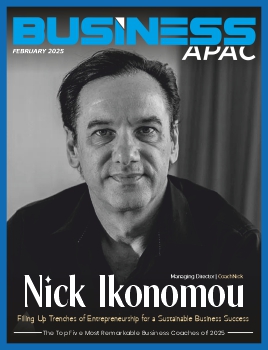Retirement, a phase of life many look forward to, can also bring a host of financial uncertainties. The challenges of maintaining a consistent income stream after the end of a regular paycheck are significant.
A recent Fidelity Investments analysis from the third quarter of 2023 reveals a subtle yet telling trend: while account balances have slightly decreased, withdrawals and loans are on the rise, underscoring the impact of factors like inflation and market volatility on retirement savings.
Furthermore, a BlackRock survey found that a staggering 93% of workplace savers are concerned about market volatility affecting their retirement savings, and 86% are worried about inflation eroding these savings. These statistics paint a clear picture: effective planning and strategy are crucial for a financially secure retirement.
Here are five tips to help you navigate these challenges and ensure a steady income in your retirement years.
Understanding and Utilizing a Reverse Mortgage
A pivotal aspect of retirement planning is understanding the tools at your disposal, one of which is a reverse mortgage. If you decide to dive into what a reverse mortgage is and how does it work, you’ll learn that it is a unique financial tool designed for homeowners who are 62 years of age and older, granting them the opportunity to convert a portion of their home equity into cash.
This arrangement is particularly advantageous, as it enables retirees to continue living in their homes while tapping into this valuable asset. The loan from a reverse mortgage is not due until the homeowner either moves out or passes away, making it a potentially reliable source of income.
However, while a reverse mortgage can provide a steady income stream or a lump sum based on the retiree’s preference, it’s vital to approach it with a full understanding of its implications. There are fees associated with a reverse mortgage, and it can have significant effects on estate planning. Therefore, weighing its benefits against its long-term impact is essential for anyone considering this option.
Creating a Budget and Sticking to It
Budgeting is a skill that becomes even more critical during retirement. The creation and adherence to a budget ensure that retirees do not outlive their savings. It involves meticulous tracking of expenses and adjusting spending habits to align with the income streams available.
Setting realistic budget goals based on these income sources is key to financial longevity in retirement. A well-structured budget helps identify unnecessary expenses and reallocate funds toward more pressing needs or savings.
Investing Wisely and Understanding Risk
Retirement is a phase that often necessitates a reevaluation of investment strategies. Diversifying investments across stocks, bonds, and mutual funds can provide a balance of growth and income.
However, understanding and managing risk become more crucial than ever in retirement. Since the ability to recover from significant financial losses diminishes, striking a balance between risk and return is essential.
It’s advisable to seek professional financial advice to tailor investment strategies to individual risk tolerances and financial goals. A financial advisor can provide insights into the most suitable investment options that align with an individual’s retirement objectives.
Planning for Healthcare Costs
One of the most significant and often underestimated expenses in retirement is healthcare. The costs associated with healthcare, including long-term care, can rapidly deplete retirement savings. It’s crucial to estimate and plan for these expenses.
Understanding what Medicare covers and exploring supplemental insurance options can provide a clearer picture of potential out-of-pocket expenses. Planning for healthcare costs involves setting aside funds specifically for medical expenses and considering options like long-term care insurance.
Exploring Additional Income Streams
Retirement doesn’t necessarily mean the end of income generation. Exploring additional income streams can be both financially and personally rewarding. Engaging in part-time work, freelancing, or monetizing a hobby can provide additional funds and keep retirees mentally and socially active.
Furthermore, it can be an opportunity to pursue passions that there was little time for during the working years. Another aspect of managing expenses in retirement is considering downsizing or relocating. Moving to a more affordable living situation or a region with a lower cost of living can significantly reduce monthly expenses, allowing savings to stretch further.

Final Thoughts
Planning for retirement requires a multifaceted approach. Utilizing tools like reverse mortgages can provide additional income, but understanding their implications is vital. Creating and adhering to a budget, wisely investing while managing risks, planning for healthcare costs, and exploring additional income streams are all crucial components of a sustainable retirement plan.
Remember, strategies may need to be reassessed and adjusted as circumstances change. Seeking professional financial advice can also be invaluable in navigating the complexities of retirement planning. With the right planning and strategies, retirement can indeed be a fulfilling and financially secure phase of life.
ALSO READ: Make the most of your Money with these 10 Types of Investment in India




















